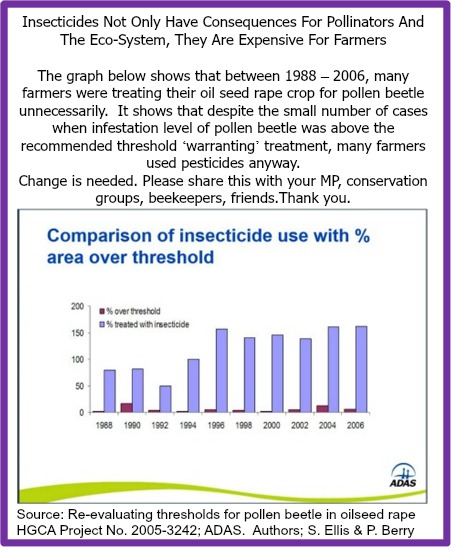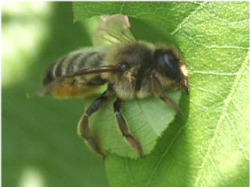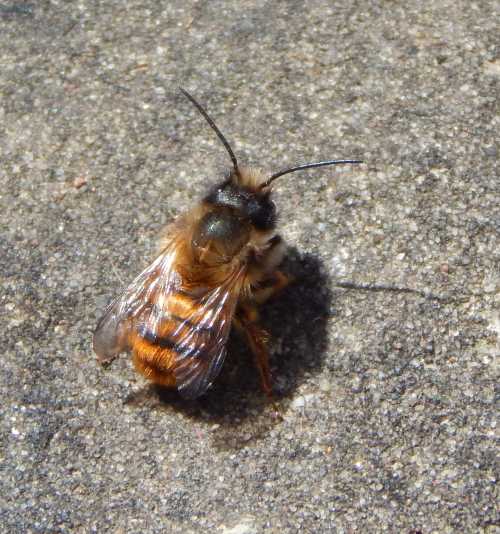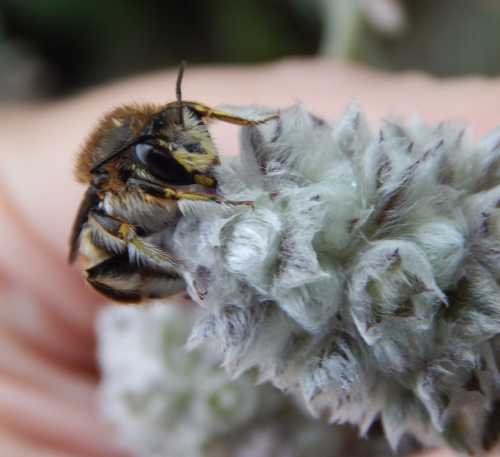Bee pollination outperforms pesticides for oilseed crop production and profitability
This is a summary of the recently published paper by Catarino et al: Bee pollination outperforms pesticides for oilseed
crop production and profitability(1).
Background
and summary
The aim of this study was to try to establish the interactions between insect pollination and agricultural inputs (meaning agrochemical inputs) on crop yields and farm economics.
To do this, the researchers model the effect of pollinators on OSR yields and farmers’ economic returns.
Their
basic findings are that oil seed rape (OSR) crop yields and gross financial
margins are higher (15% - 40%) in fields with higher pollinator abundance than
in fields with lower pollinator abundance, but that this effect is greatly
reduced by pesticide use.
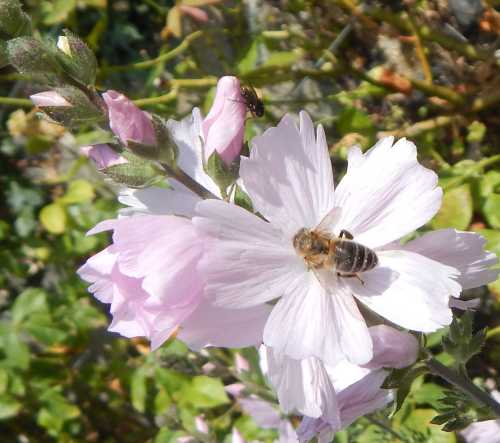 Honey bee on prairie mallow flower.
Honey bee on prairie mallow flower.
The researchers suggest that greater yields can be generated either
by increasing fungicide agrochemical use or by increasing pollinator numbers,
but their results do not show that increasing insecticide agrochemical
usage generates increased yields.
However, whereas pollinators boost crop yield, increasing agrochemical usage as a means to increase yield actually reduces gross margin because the additional cost of agrochemical use is not covered by increased yields.
Scope and methodology
The researchers looked at oil seed rape (OSR) crops in 294 farmers’ fields in a research site covering 750 km2 over a 5 year period, and examined:
- Gross yield per hectare;
- Gross margin per hectare;
- Effect of insecticide and herbicide use;
- Effect of pollinator abundance.
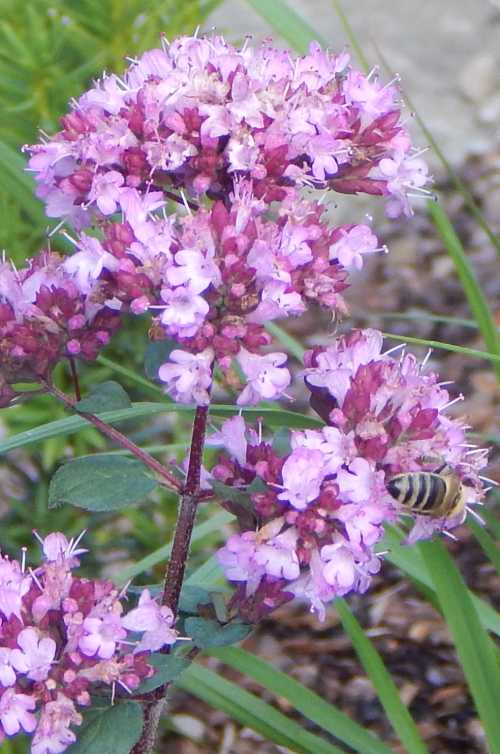 Honey bee on oregano.
Honey bee on oregano.
Findings
- Use of insecticides and herbicides do not increase gross yield – with one exception, namely that use of fungicides was shown to increase yields;
- However, use of insecticides and herbicides significantly reduces gross margin (not a surprise if there is no increase in yield to offset the financial investment in the chemicals – i.e. the cost of the agrochemicals is not recovered in the form of higher yields);
- Yield of OSR increased with bee abundance (0.31 t ha-1 higher in fields with high bee abundance);
- For gross margin, bee abundance was the only variable with a positive effect – 15% higher in fields with the highest bee abundance;
- There was a negative impact of insecticide use on bee abundance;
- Increased use of nitrogen fertilizer did not create an increase in yield, confirming what has been shown in other studies;
- Although the use of insecticides reduces the abundance of pests, the reduction in abundance of pests did not produce an increase in OSR yield.
Comment
Previous research has shown that farmers waste their money (quite apart from the environmental effects) by using insecticide unnecessarily – sometimes prophylactically (preventative rather than as treatment).
A study by ADAS showed that farmers were treating for pollen beetle even when treatment was not necessary (read about ADAS findings.
ADAS note that crops can recover from less severe attacks from pollen beetle on their own, and
that treatment is only necessary when a pollen beetle threshold is above a
certain level.
I suggest farmers might benefit from being given non-biased information, whilst familiarizing themselves with these thresholds. Increasingly, I’m glad to say that I do read about farmers rejecting some chemicals.
References:
1. Catarino R, Bretagnolle V, Perrot T, Vialloux F, Gaba S. 2019 Bee pollination outperforms pesticides for oilseed
crop production and profitability. Proc. R. Soc.B 286:20191550.
http://dx.doi.org/10.1098/rspb.2019.1550
If you found this page helpful or interesting, I'd really be grateful if you would share it with others - if not this page, perhaps another, such as Gardening For Bees.
Thank you so much :) .
